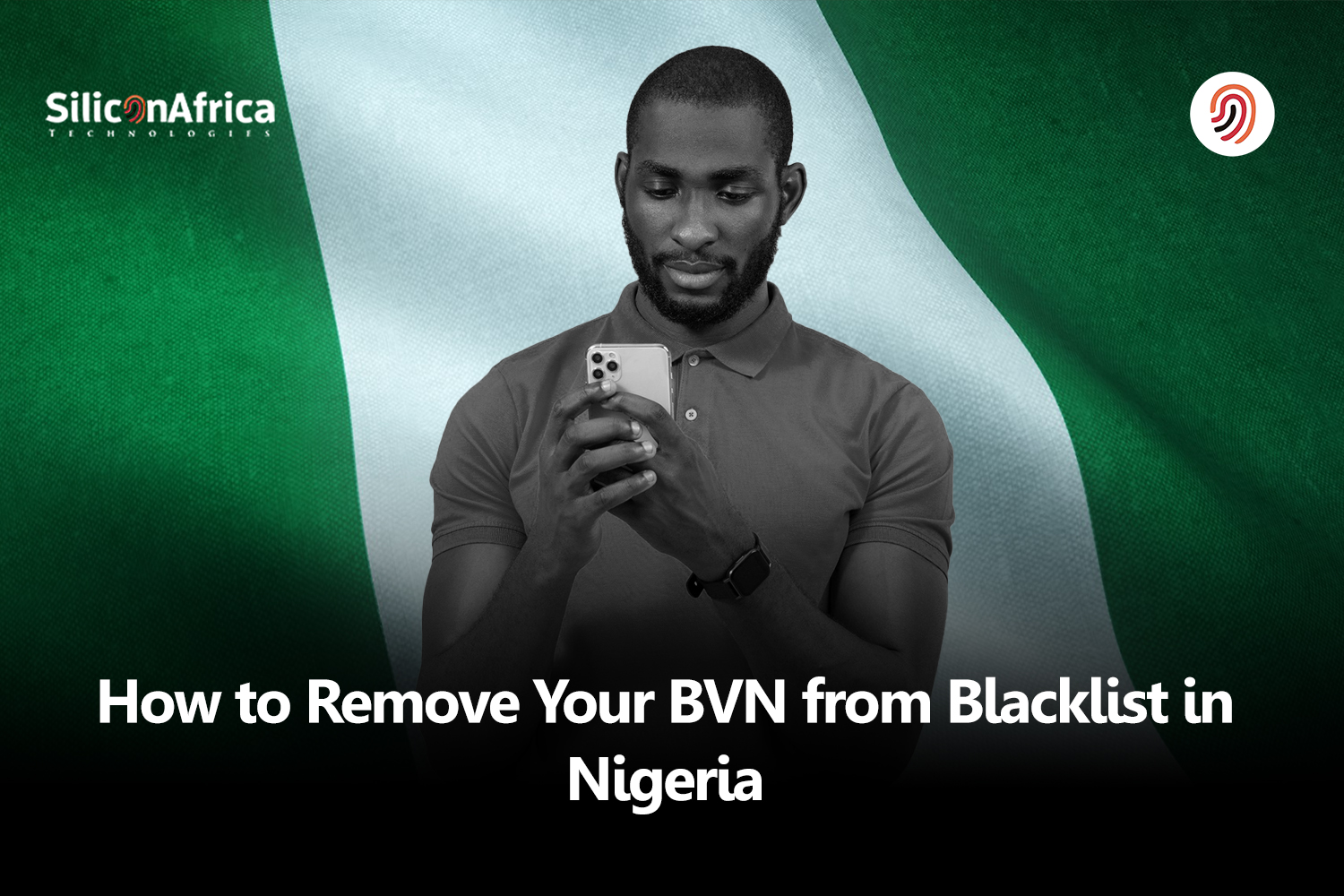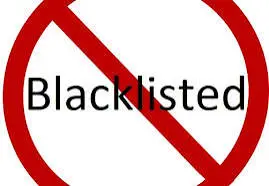Physical Address
60 Ekwema Cres, Layout 460281, Imo
Physical Address
60 Ekwema Cres, Layout 460281, Imo

In Nigeria, the Bank Verification Number (BVN) system was introduced by the Central Bank of Nigeria (CBN) to curb financial fraud and improve the banking sector’s efficiency.
The BVN is a unique identifier for each bank customer across all the banks in Nigeria. It is a crucial part of the banking process, ensuring security and reliability.
However, being blacklisted can be a significant issue that can hinder your financial activities. Issues such as unpaid loans, fraudulent activities, and discrepancies in personal information can lead to blacklisting, significantly impacting one’s financial activities.
In this article, we’ll be reviewing the reasons behind blacklisting and the necessary steps to remove your BVN from blacklist in Nigeria.
The Bank Verification Number (BVN) is an 11-digit unique identifier assigned to each bank customer in Nigeria.
It was implemented by the Central Bank of Nigeria (CBN) and the system aims to enhance security, reduce fraud, and improve the efficiency of banking operations.
It links all of an individual’s bank accounts across different banks, providing a unified identity for each customer.
By using biometric information such as fingerprints and photographs, the BVN ensures that each person has a single, verifiable identity within the Nigerian banking system.
Read also: How to Check My BVN Name and Date of Birth Online on Phone: A Step-by-Step Guide
Blacklisting refers to the practice of placing individuals, entities, or items on a list that identifies them as being untrustworthy, disqualified, or not allowed to participate in certain activities or access specific services.
When someone or something is blacklisted, they are typically restricted from engaging in certain activities, accessing services, or being associated with certain organizations or systems.
Here are some contexts where blacklisting is commonly used:
It restricts access to banking services due to unpaid debts or fraudulent activities.
Here, it prevents individuals from securing jobs due to misconduct or poor performance.
It blocks stolen or fraudulent mobile devices from network use.
Blacklisting bars individuals from entering countries due to security or legal issues.
Blocks IP addresses, domains, or emails involved in malicious activities.
The main goal of blacklisting is to safeguard systems, organizations, and the public from potential risks.
BVN blacklisting is a status where an individual’s Bank Verification Number (BVN) is flagged by the banking system due to certain issues or irregularities.
When a BVN is blacklisted, it indicates that the person associated with that BVN is restricted from accessing various banking services.
Common reasons for blacklisting include:
Being blacklisted can prevent individuals from opening new bank accounts, accessing loans, or conducting other financial transactions until the issues are resolved and the BVN is cleared from the blacklist.
Read also: How to Check Nirsal Loan with BVN Online
After understanding the main reasons for a BVN being blacklisted, the next crucial step is to find out if your BVN is indeed blacklisted if you have any suspicions. Here are some ways to check:
1. Visit the Central Bank of Nigeria’s website and request the list of blacklisted BVNs.
2. Contact your bank to check the status of your BVN by visiting a nearby branch.
3. Use services from credit reporting companies like CreditConnection.
If you discover that your BVN is blacklisted, these are steps you can take to resolve the issue:
Start by requesting a copy of your credit report from any licensed credit bureau in Nigeria, such as CRC Credit Bureau or Credit Registry.
This report provides detailed information about your credit history and the reasons behind your blacklisting.
Carefully review your credit report for any inaccuracies or outdated information. Common errors might include wrongly reported debts or accounts that do not belong to you.
If you find any discrepancies, dispute them with the credit bureau by providing supporting documentation.
If your BVN is blacklisted due to unpaid debts, it’s crucial to settle these debts promptly. Contact your creditors to negotiate a repayment plan.
Clearing outstanding debts significantly improves your credit score and credibility.
Reach out to the financial institutions that reported your BVN. Request detailed information about the blacklisting and the steps needed to resolve the issues. Ensure that all communications are documented.
If there are any errors on your credit report, file a formal dispute with the credit bureau. Provide all necessary evidence to support your claim.
Credit bureaus are legally required to investigate disputes and correct any verified inaccuracies.
After resolving outstanding issues, submit a formal request to the credit bureau or financial institution to remove your BVN from the blacklist.
Include all relevant documentation that proves you have addressed the reasons for the blacklisting.
If your efforts with the credit bureau or financial institution do not yield results, you can escalate the issue to the Central Bank of Nigeria (CBN) or other relevant regulatory bodies.
They often have procedures for dispute resolution and can intervene on your behalf.
Keep track of your request’s progress by regularly following up with the credit bureau and financial institutions. Consistent follow-up ensures that your case remains a priority and helps expedite the process.
In some cases, blacklisting might come with mandatory waiting periods, ranging from a few months to several years. While waiting, continue to demonstrate financial responsibility to build a positive credit history.
Read also: Update on NIRSAL Loan: Application Procedure, Requirements and How to Check with BVN
The duration required to remove a blacklisted BVN in Nigeria varies greatly based on the specific circumstances and institutional procedures involved.
Here are some general timelines:
For minor issues such as temporary account discrepancies or a few missed payments, the removal process might take between 1 to 6 months, provided the problems are promptly addressed.
For more significant defaults that necessitate thorough investigation or the settlement of larger debts, the process typically takes 6 months to 2 years. This timeframe accounts for the necessary back-and-forth communication and documentation.
In cases involving serious infractions or fraud alerts, financial institutions usually impose a mandatory blacklisting period of 1 to 5 years, even after the dispute is resolved, as a stringent penalty.
For cases of severe fraud or repeat offenses, a mandatory blacklisting period of 3 to 5 years is often enforced, regardless of when the underlying issues are resolved.
While the best-case scenario for BVN blacklist removal is a matter of months, severe cases with multi-year mandatory tenures are not uncommon.
Persistence and adherence to the necessary procedures are essential for achieving a favorable resolution.

A blacklisted BVN can lead to several serious repercussions:
Your application for a new loan will be denied. Lenders conduct background checks on BVN statuses and will reject applications if they find the BVN is blacklisted.
Many employers perform background and credit history checks on potential hires. A blacklisted BVN can prevent you from securing your desired job by significantly reducing your chances of having your job application accepted.
A blacklisted BVN can hinder your chances of obtaining a visa, as embassies require proof of financial stability to ensure you will not become a burden in their country.
Individuals with a blacklisted BVN will be ineligible for certain government loans and other benefits.
You need a BVN to open a bank account in Nigeria. If your BVN is blacklisted, you will be unable to open a new account or receive payments through the banking system.
Read also: Top 10 B2C Market Research Tools You Must Know As a Techy
A BVN (Bank Verification Number) is a unique identifier for individuals in the Nigerian banking system. It can be blacklisted due to financial irregularities such as unpaid debts, fraudulent activities, or other violations.
To check if your BVN is blacklisted, request your credit report from any licensed credit bureau in Nigeria, such as CRC Credit Bureau or Credit Registry. The report will show any blacklisting and the reasons behind it.
Yes, you can remove your BVN from the blacklist by settling your outstanding debts. Contact your creditors to negotiate a repayment plan and ensure all debts are cleared.
If your credit report contains errors, dispute them with the credit bureau. Provide all necessary evidence to support your claim, and the bureau is required to investigate and correct any verified inaccuracies.
Yes, if your efforts with the credit bureau or financial institutions do not yield results, you can escalate the issue to the Central Bank of Nigeria (CBN) for assistance.
While you can remove the blacklisting, your credit history will still show past activities. However, demonstrating responsible financial behavior over time can improve your creditworthiness.
Credit bureaus collect and maintain information on individuals’ credit histories. They can blacklist your BVN based on reports from financial institutions and update your credit report once issues are resolved.
Removing your BVN from the blacklist requires diligence, patience, and a proactive approach.
By following these steps and maintaining responsible financial behaviour, you can successfully clear your BVN and restore your access to banking services in Nigeria. Always remember to keep all records of communications and transactions as evidence of your efforts.
If you found this piece useful, kindly leave us a nice comment and follow us on X or Twitter @SiliconAfriTech for easy access to other of our useful contents.